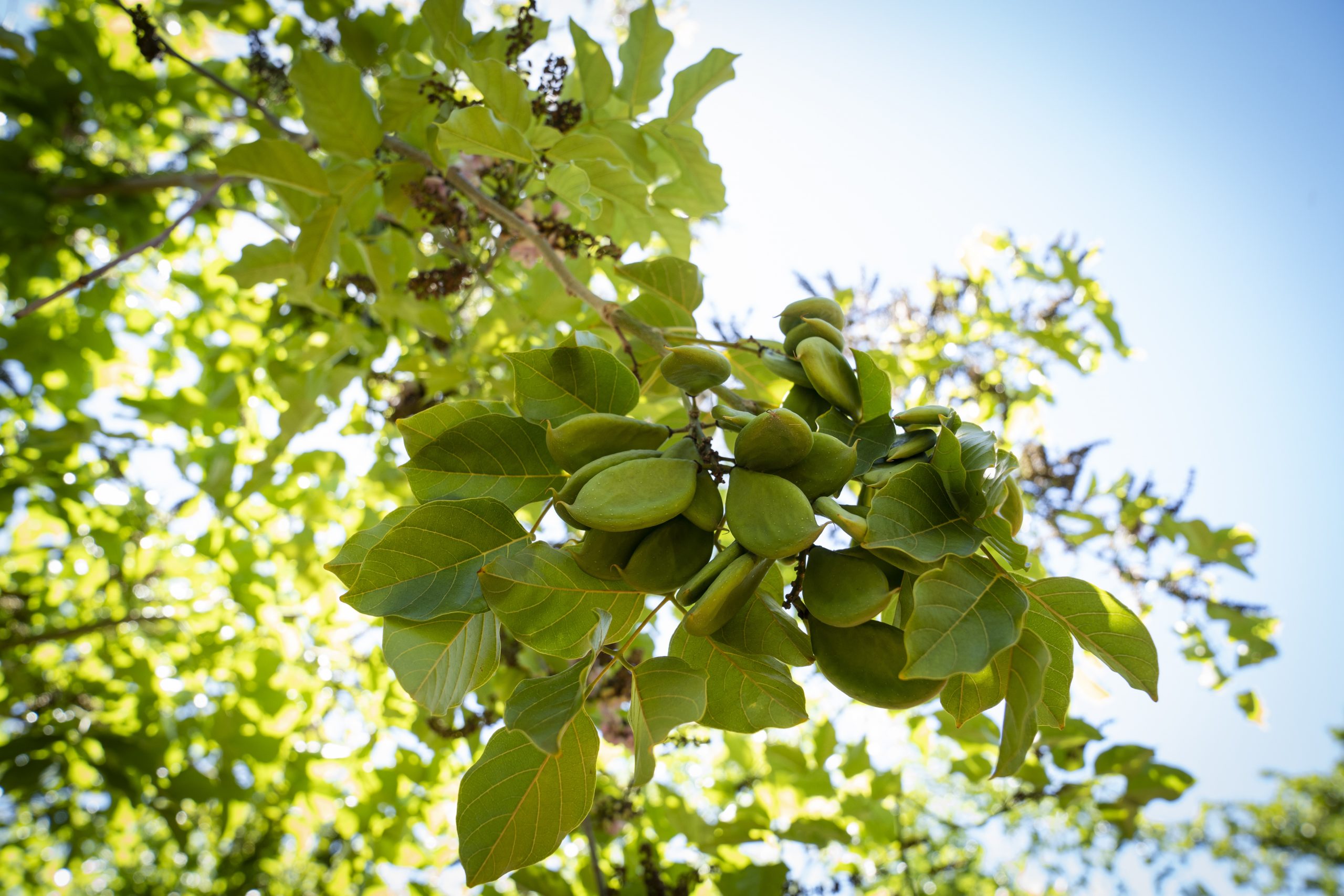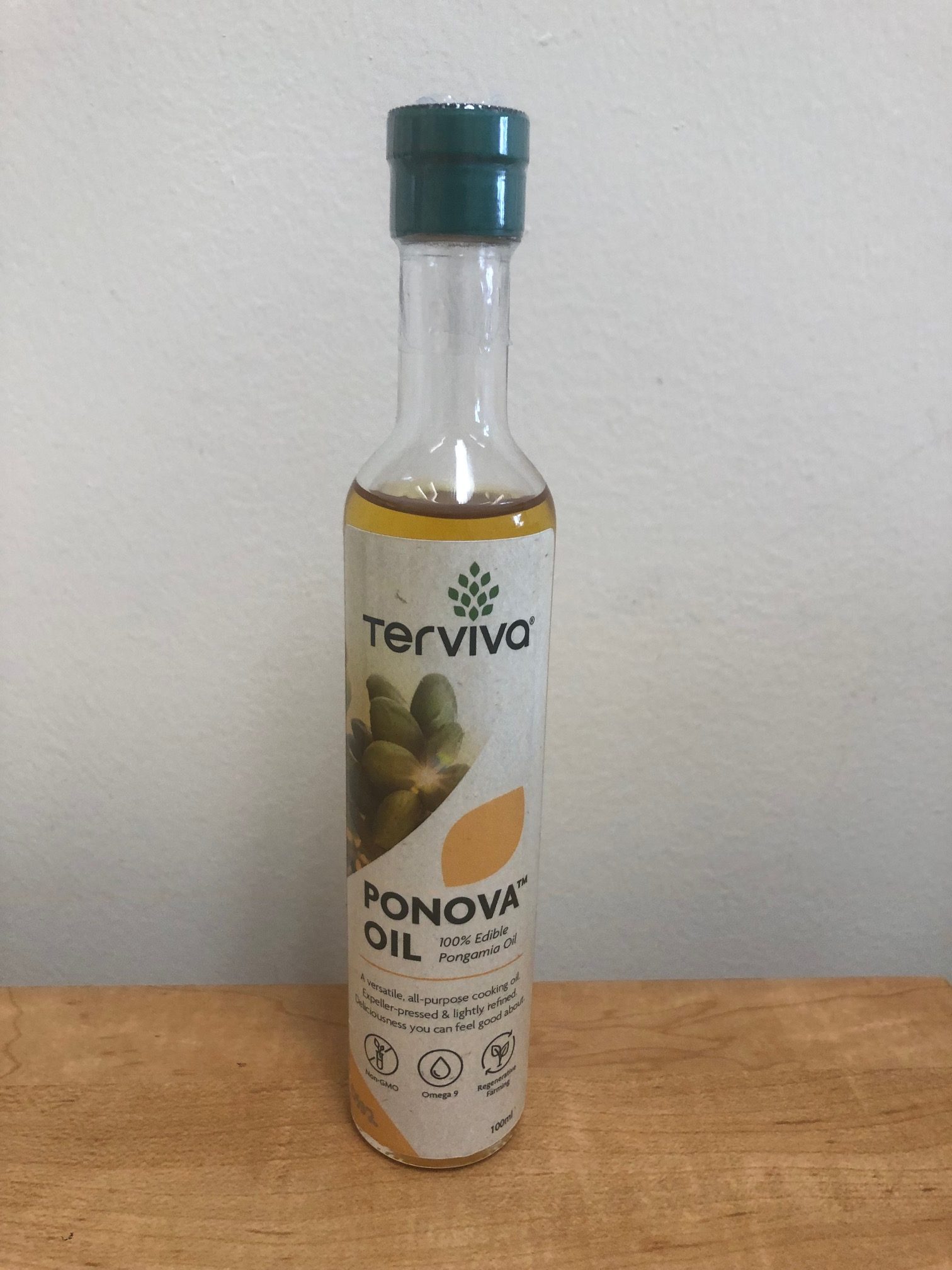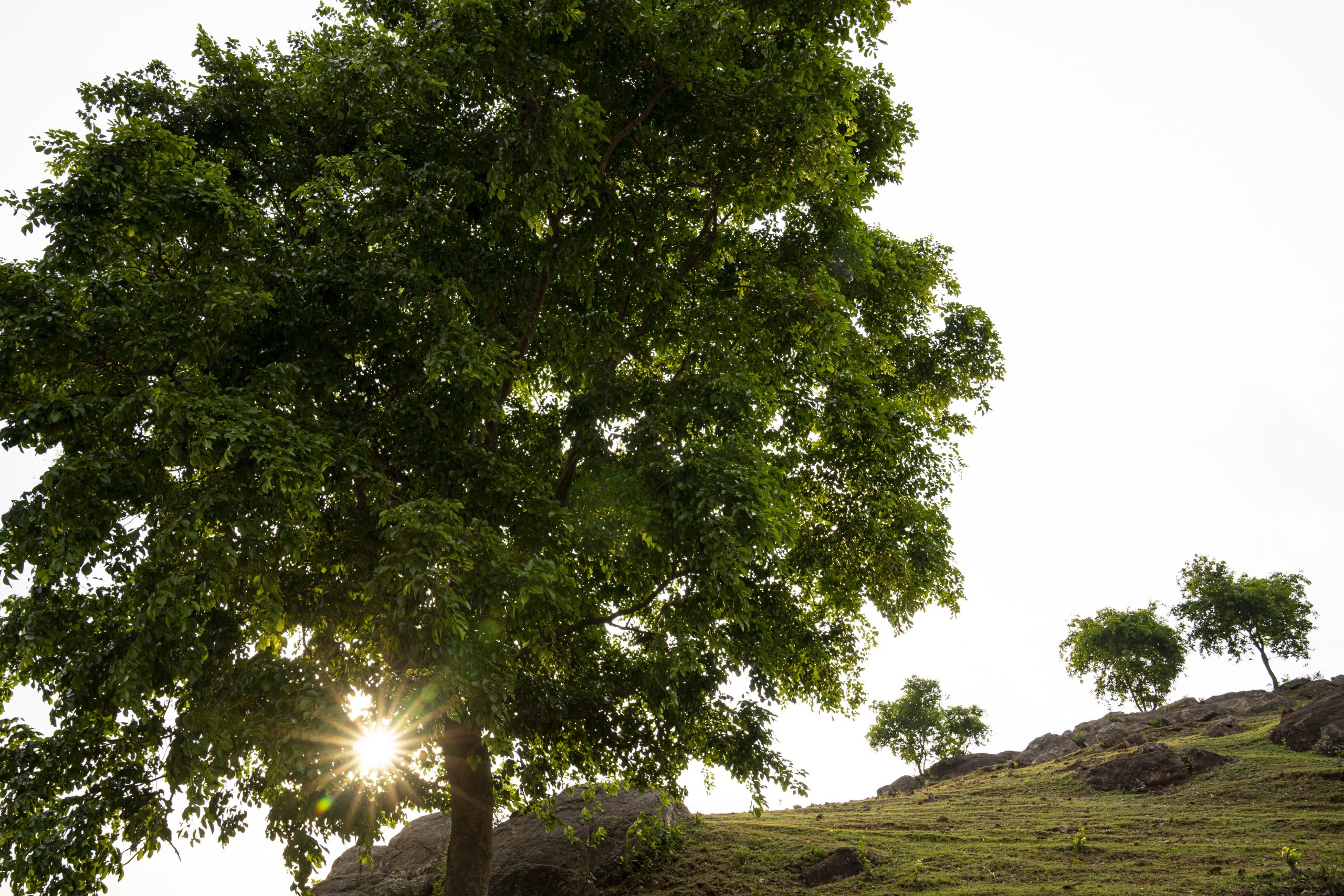Terviva produces new food sources—oil, protein, and flour—from climate resilient trees
Climate change with its extreme weather events such as floods and droughts is impacting agriculture worldwide. Farming and food production will have to become more resilient to withstand these changes. A tree that grows wild in India offers a solution, one that could help produce more nutritious food, provide smallholder farmers with vital income, help reforestation efforts, and mitigate climate change.
“Bringing minor tree crop to the forefront of a new food source”
The tree is pongamia, a legume tree native to Asia. A California-based company, Terviva, has been working since 2010 to transform the wild trees to a food crop and produce oil, protein, and flour from the trees’ beans—with a mission to benefit people and the planet.
“Agriculture is increasingly impacted by and a contributor to climate change,” says Marc Diaz, Terviva’s chief commercialization officer. “We thought that bringing a minor tree crop to the forefront as a new food source when people are re-examining their diets and the impact they are having on the planet would really connect with consumers.”
Pongamia has been growing wild for thousands of years in subtropical regions, “anywhere the Indian Ocean touches,” Diaz says. In recent years, the trees have been used in reforestation projects and even planted in suburbs like Miami, Honolulu, and Brisbane, Australia as ornamental trees.
“They’ve proven to be very compatible with existing ecosystems and aren’t invasive,” Diaz says.

Pongamia beans
Pongamia trees produce pink flowers that develop into beans. Pongamia trees in India produce over one million metric tons of the beans each year that smallholder farmers harvest and sell to businesses that process the beans into lamp oil or skin care products.
In the first five years of the company, Terviva’s plant breeders focused on selecting the most vigorous pongamia trees and planting them in different regions to see where they would best thrive and produce.
“That work was vital and without it we wouldn’t be able to now describe pongamia as a crop we can plant and produce a predictable yield,” Diaz says.
Terviva now has pongamia tree projects in Florida, Hawaii, and Australia along with wild harvested trees in India.
It took another five years for Terviva’s scientists to remove the beans’ bitter taste, which is why it was never considered a viable food source.
“You end up with this great oilseed, but it’s naturally really bitter,” Diaz says. “We did a lot of work, put the chemists and food manufacturers on it and today we have an affordable, scalable way to make a healthy oil that has broad functionality.
Terviva processes the beans to make healthy food ingredients including oil and protein products called Ponova™.
Easy substitute for soy and sunflower oil
Ponova oil offers food manufacturers and consumers significant advantages. It is a lightly refined and versatile vegetable oil that can be used in a wide range of food applications. The oil has a golden color, and its taste is like high-quality virgin olive or avocado oils. It is a mid-oleic oil, making it an excellent dietary source, and contains 55% omega 9 fatty acids, another nutritional advantage. Ponova oil is also expeller pressed, a natural process that doesn’t involve the use of harsh chemical solvents used to produce soybean oil.
“It’s an easy substitute for existing oils like soy and sunflower,” says Ashley Kleckner, Terviva’s senior vice president, food sales and marketing. “We’ve tested it in a variety of applications, and it performs beautifully.”
Terviva aims to begin commercial production of Ponova oil later this year. The company is now identifying potential customers and partners to work with and developing manufacturing facilities. One customer, Hawaii-based Aloha, recently announced that it was using Ponova oil made from pongamia trees grown on Oahu.
Kleckner is confident Ponova oil well be well-received in the marketplace. “Scale up is going really well, and we anticipate having good quantities of product on the market towards the end of this year,” she says.
Other products being developed include Ponova protein and flour. “We have a little more development work to do there,” Kleckner says. “But we’ve done a lot of application work, and they are super delicious protein and flour products.”
Terviva is also in the process of getting its products Non-GMO Project Verified because potential customers value that certification, Diaz says.

Ponova Oil
Regenerative and social benefits
Ponova oil offers food companies another benefit—the opportunity to increase their positive impact on the planet using a more sustainable, regenerative ingredient that supports the farming communities who produce it.
The trees are perennials and don’t need to be planted every year like soybean or other oilseed crops. There is no tillage or soil disturbance. Inputs are few and little or no pesticides are used on the trees.
“In 10 years of growing in Florida, we’ve never sprayed pesticides,” Diaz says.
As a legume, pongamia adds nitrogen to the soil. The trees require less water; they have thrived in regions like India where there are monsoons for three months and very little rain the rest of the year.
The trees offer Florida’s citrus growers, who have faced major challenges with the devastating citrus greening disease, a viable alternative.
“Florida has lost three quarters of its citrus acreage, but we have world class tree farmers looking for a replacement crop in a tough place to grow,” Diaz says.
There are now 1200 acres of pongamia growing in the sunshine state.
Another advantage is that pongamia trees can be planted on marginal lands that aren’t suitable for other uses. Also, no forests would be cut down to plant pongamia trees.
“We are never going to force this tree where it isn’t a great fit,” Kleckner says. “We can revitalize land.”
Perhaps the biggest benefit of pongamia trees is their ability to sequester carbon, which helps to mitigate climate change. Diaz describes the trees as “carbon vacuums.”
“Each tree stores over a ton of carbon over its productive life in the orchard,” Diaz says. “And we’re able to get 130 tons of carbon per acre, a tremendous contribution to drawing down carbon.”
There is also a social benefit, providing income to farmers, including poor smallholder farmers in India, who are Terviva’s primary supplier of pongamia beans.
“People care about the social impact as well as the environmental impact,” Diaz says. “We are able to double the price that these smallholder farmers get paid for the beans that they harvest.”
“We are here for impact on land and livelihoods”
A shared commitment to addressing climate change and social impact led to a partnership between Terviva and Ciranda, a leading U.S.-based supplier of organic, non-GMO, and fair-trade ingredients. Ciranda’s mission has been to drive positive change in communities worldwide by connecting farmers and ingredient manufacturers to markets they would otherwise not have access to.
Tonya Lofgren, Ciranda’s strategic marketing manager, says working with Terviva is a natural fit. Ciranda’s mission aligns with Terviva’s mission to source Ponova oil from an equitable supply chain that contributes to healthier environments and supports farmer and smallholder communities.
“Together we are trying to grow this product long-term, and our customers already have a major interest in regenerative agriculture and social impact,” Lofgren says. “With this partnership, Terviva can focus on the production, and we can focus on servicing the customers.”
Looking forward, Terviva has big plans to scale production of pongamia trees. They aim to plant 420,000 acres of the trees worldwide by 2030.
“We are here for impact on land and livelihoods, we want to revitalize soil, we want trees in the ground, and we want to be drawing down more carbon. Our future plans are all around that mission,” Kleckner says.





